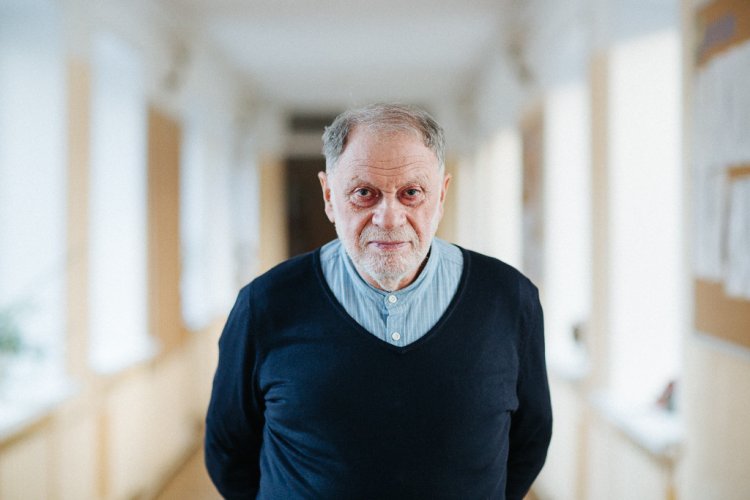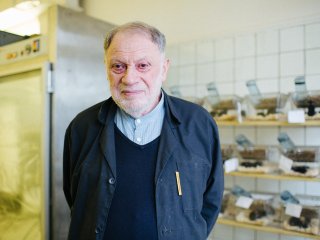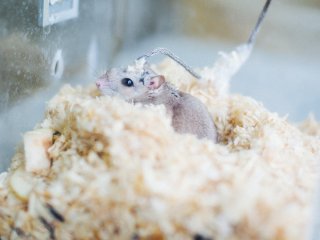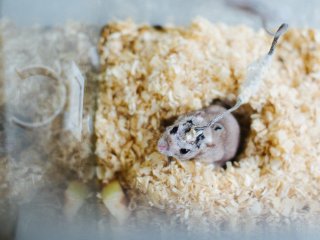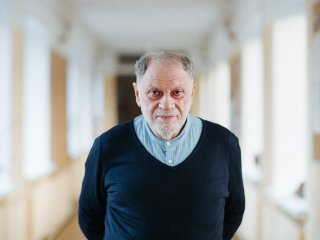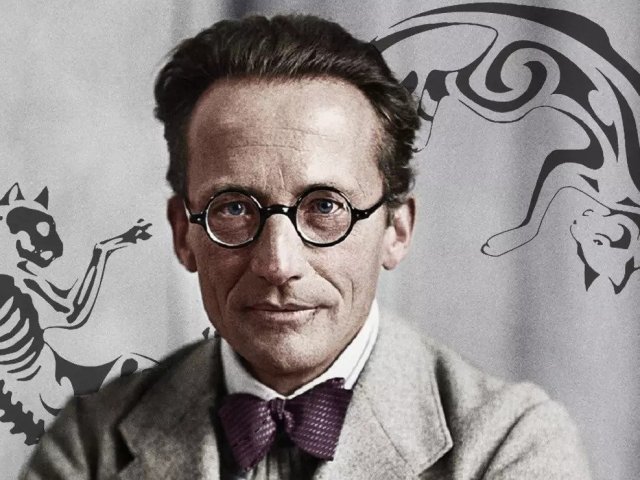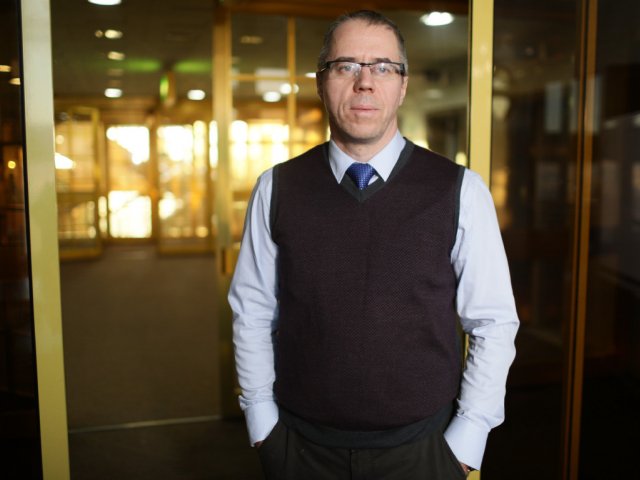Why do we need to sleep? Is it possible to sleep less and stay healthy? What do our dreams mean? V. M. Kovalzon, Doctor of Biological Sciences, Chief Research Officer at the Severtsov Institute of Ecology and Evolution of the Russian Academy of Sciences, and Chairman of the Board of the Russian Society of Somnologists, tells us about it.
– Professor Kovalzon, sleep is an important part of our lives. However, many people believe that sleep is something unnecessary and superfluous, and that we would be better off without it since we would do more during our waking time. Would you tell us about the real role sleep plays in our lives?
– If sleep had been unnecessary and we could stay awake all the time, no one would have slept. However, all animals have their active state and their rest state. If evolution created these states, it means this has some advantages for survival, which made is possible for those processes to remain. Another thing is that, in a civilization, some things evolution gave us become unnecessary.
For example, a huge number of researchers believed until recently, that rapid eye movement sleep mechanisms are needed for the normal functioning of the brain. The problem is that during the course of the evolution, all that was adapting to a particular period. We have genes that express when we are awake and don’t when we are asleep. Inversely, other genes do not express when we are resting and asleep, and express only when we are awake.
There was a case described in literature, with a patient who got a shrapnel head injury at 20. Normally, people die when hit by shell fragments affecting the brain stem. The patient actually was in a coma for many days, but eventually recovered, albeit after a long period of nursing. 15 years after his injury, he happened to be examined in a sleep research laboratory where the scientists discovered to their surprise that he had no rapid eye movement (REM) sleep. The tomography chart showed that he still had shell fragments in his brain stem and his cerebellum, even in the region of the brain stem that is responsible for launching the REM sleep mechanism.
– How did he live all those years?
– Almost without dreams. He was recorded for many nights in a row, and only on the fourth night they registered tiny, 6-minute periods of REM sleep (sleep with dreams). We usually have two hours of REM sleep every night, and he just had four to five minutes of it. But he felt well, lived, studied, and worked as a lawyer. He did not suffer from memory issues or any other cognitive disorders.
Then he was found again, 35 years later, when he was 68 years old and recorded him again. His sleep slightly improved. During the first examination, he slept about 4.5 hours a night. By the age of 70, he slept about six hours, with up to 15 minutes of REM sleep. All the same, it cannot be compared with the normal sleep in healthy people. The amazing thing is that he performed on the average or even above-the-average levels at intelligence tests.
– Why do we need REM sleep then?
– The American neurophysiologist Howard Roffwarg formulated an alternative hypothesis many years ago. He wrote that REM sleep (fast sleep) was needed for the nervous system to mature. Let’s say, a newborn sleeps 16 hours a day, including the eight hours it spends sucking and eight hours of the so-called activated sleep that is considered to be a precursor of REM sleep in adults. Then, as the nervous system matures, and the maturing of neurons ceases, the amount of REM sleep drops sharply, and the percentage of REM sleep reaches the adult level by around 4 to 6 years of age. Thus, the conclusion was that when the brain has matured and neuron mitoses have stopped, REM sleep is no longer that important. But even this conclusion is being questioned now.
It should be said that somnology – the science I specialize in – is one of the fastest growing branches of the mighty tree of neurosciences. Recently, discoveries in somnology have been made several times a year, perhaps even on a quarterly basis. Astounding work that makes us look at the sleep and waking processes in a new way.
For instance, recent studies by Japanese researchers have shown that it is possible to produce mutant mice that would never experience REM sleep. Moreover, they would grow without it apparently. How this is going to end is frightfully interesting, it being a totally fresh work. The authors write that such mice are no different from other mice: they are fertile and absolutely normal. I think that the mice will become available soon, allowing detailed research regarding the “price” they pay for the congenital lack of REM sleep.
Amazing things come to light. Although we sleep eight hours a day, including two hours of sleep with dreams, none of the existing explanations can be considered sufficiently convincing. At the end of the day, for all the breakthrough discoveries, we still don’t know how the brain works. Tools for targeted brain research only became available to scientists in the late 20th and early 21st centuries: neuroscanning for people, and special innovative methodologies, such as neurogenetics, chemogenetics, optogenetics, etc. – for animals. These rapidly developing methods give hope that the tools will enable scientists to understand something important in the coming years after all.
– Dr. Kovalzon, what are our dreams and why do we need them?
– Dreams are not my subject since I’m a physiologist, while dreams are a topic in psychology. We have a scientific community studying dreams. Their leader is Yelena Aleksandrovna Korabelnikova. They have a most interesting international congress on dreams on April 6-9.
If you want my personal opinion, though I’ll say once again that it’s not my field, there is the so-called “neurocognitive” theory of dreams among the existing hypotheses, and this theory seems the most convincing one to me. According to the theory, the evolution did not create dreams “on purpose”; dreams were produced at the “crossing point” of two major branches of the tree of evolution: the evolution of thinking (especially, producing complex, “four-dimensional” visual images) and the evolution of the sleep/wake cycle, and are a sort of a “natural epiphenomenon” of brain activation during the REM sleep phase. The thing is that brain activation during the REM sleep phase (when the person is dreaming) is higher than it is in a calm waking state. Moreover, the state of the brain becomes closer to its active state of very strong emotional excitement. In addition, there is a high level of arrhythmia in the entire body – in the heart and in the respiratory system (tachycardia alternates with bradycardia), while the muscle system is turned off entirely (with the exception of respiratory and eye-movement muscles). All in all, the condition is very dangerous, even fraught, I would say...
One of my teachers, the late Alexander Moiseevich Vein said that the state when life is hanging by a thread is the state we are in in the morning. Of course, he meant his patients rather than young and healthy people. Indeed, one of the mental spikes in spontaneous deaths happens to be in the early morning, when REM sleep is most common.
If in an experiment we deprive a lab rat of REM sleep for a long time (2-3 weeks), that destroys its immune system completely and the animal dies of sepsis, which occurs when the normal microbes that live in a healthy gut suddenly start getting into the blood stream. This was demonstrated in experiments.
– However, you spoke about a man who lost his REM sleep due to an injury, and still was doing very well.
– Yes. This makes one think that there are two different systems – a system that generates the state of sleep and the system that implements this state. If the system implementing the state of sleep is suppressed, the desire to go to sleep does not disappear. It grows, resulting in a very severe condition that may lead to death.
On the other hand, if the mechanism generating the state of sleep is damaged as an experiment or accidentally, due to a disease, there may be no obvious impact. In confirmation of this, Michel Jouvet, a great somnologist and one of my teachers as well, published a book a year before his death, which will soon be released in Russia in my translation. The title is Sleep, Consciousness, and Waking. In the book, he wrote about a case that had been described before but did not attract sufficient attention at the time.
That was the only case in the world history of medicine, when a patient actually did not sleep for four months. Scientists used up tons of paper, registering and examining his EEG. He had an extremely rare diagnosis – the so-called Morvan's Fibrillary Chorea. I was asking our neurologists, and nobody had ever seen patients with the disease. There are just about two dozen of such cases described in history in special literature in English. That patient, amongst other symptoms, lost sleep completely; he did not sleep for four months, which was confirmed objectively as electroencephalogram (EEG) tests were done on him constantly during that period. He did not suffer from any cognitive disorder whatsoever. For instance, he would play cards with his relations who came to visit him during the day, and won! Then he died despite the efforts to save him. However, the immediate cause of death was not entirely clear. At any rate, this is a remarkable phenomenon, since a normal person cannot go on without sleep for so long. They would die much sooner. Apparently, that man had a damaged sleep generating system, with the sleep implementing system intact. Morvan's Fibrillary Chorea is an autoimmune disease: the body generates autoantibodies to some proteins that form certain channels in nerve cells involved in carrying potassium ions.
Recently, a group of scientists performed an interesting study with fruit flies. Such flies do not really sleep the way we do, but they have periods of rest. They normally rest in the dark (for 5 to 10 hours) and are active in daylight hours. Among 1,500 such flies, geneticists found a small group of “nearly sleepless” flies, whose state of rest lasted less than an hour a day. In that group, there was one that “slept” 15 minutes a day, one that “slept” 14 minutes, and another one, “sleeping” four minutes a day.
The question was whether those flies had shorter lives. It did not seem so; no confirmation of that was found. Such flies might be unable to survive in a natural environment, but in a laboratory, such flies, mice and, quite possibly, people (in a hospital for example), deprived of REM sleep and even of any sleep, can live and even feel well. The conclusion is that, in principle, it is likely that night sleep hours can be somewhat reduced by targeting the sleep generation system, without increasing sleepiness during the day.
However, we would not be able to do it now: we don't even know what this system is. We can only guess. This is an uncharted area that has just started to open to us. The current issue is the possibility of working with these systems in the future to optimize sleep, so that people can sleep less without any negative health effects or shortening their lives.
–Dr. Kovalzon, I would like to ask you about the state of insomnia. It is familiar to many people and normally causes them a lot of suffering. What methods of fighting insomnia would you recommend?
– As a biologist, I would say that sleep disorders cause less harm than sleep aids. Unfortunately, modern sleep aids are very far from perfect; nearly all of them “target” a particular system in the brain that “hates” to be influenced. Here’s a good example for you – the case of L. I. Brezhnev, which E. I. Chazov once spoke about. Doctors did not allow him to take sleeping pills; there weren’t any good sleep aids back then. But he concocted some devil’s brew of his own and would send his help staff to a regular pharmacy to buy it, and then took it every night. There was nothing the doctors could do about it. He thought he was well, while actually his health started deteriorating under the influence of those substances. He developed cognitive issues very fast, before the eyes of the whole world, due to his daily use of those substances. Moreover, substances of the same group are still being actively produced and sold by all pharmaceutical companies.
If you have any sleep issues, consult a somnologist (there are sleep disorder centers in all major cities), not a neurologist, a general practitioner, or a psychiatrist. Such specialists tend to know very little about sleep disorders. Our medical schools do not teach this topic. Therefore, doctors often misdiagnose their patients and prescribe medications that are worse than useless.
Source of photo on the slide.
